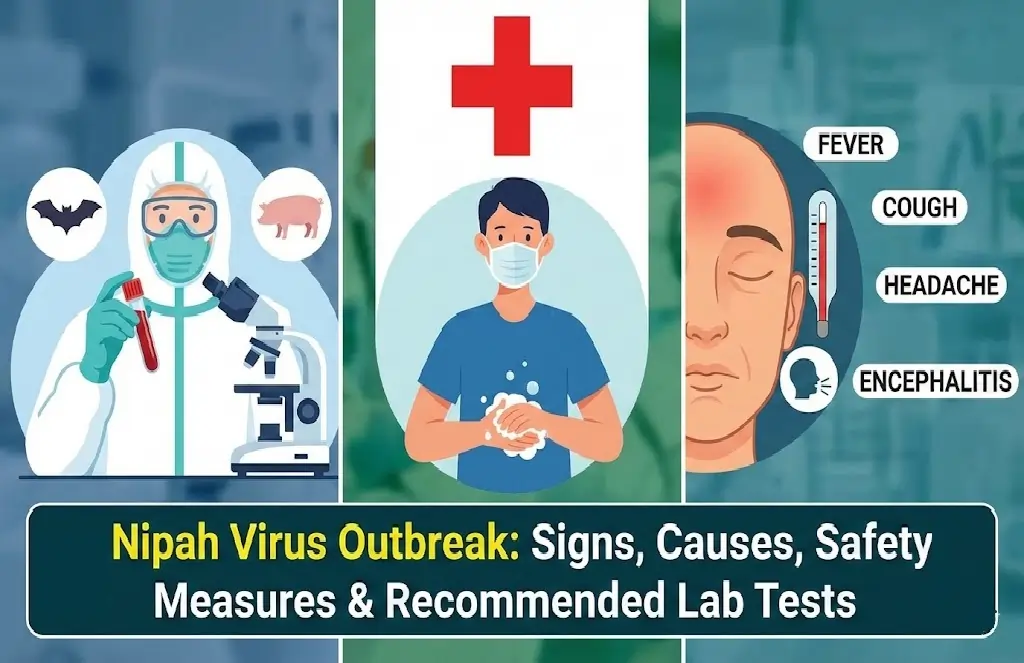Good quality sleep is the foundation of health. Unfortunately, millions of people suffer from sleep disorders, with insomnia being the most common. Poor sleep not only causes fatigue and irritability but also increases the risk of serious health problems such as heart disease, obesity, and depression.
Table of Contents
- What Are Sleep Disorders?
- Understanding Insomnia
- Common Causes
- Symptoms to Watch For
- Health Risks of Poor Sleep
- Diagnosis
- Treatment Options
- Tips for Better Sleep Hygiene
- Expert Opinions
- FAQs
- Conclusion
What Are Sleep Disorders?
Sleep disorders are a group of medical conditions that disturb a person’s normal sleep patterns, leading to poor quality sleep, difficulty falling asleep, or staying asleep. These conditions not only affect rest but also influence overall health, productivity, and emotional well-being. According to experts, adults typically need 7–9 hours of quality sleep each night, and any long-term disruption can have serious health consequences.
Sleep disorders are not just about feeling tired; they are recognized medical issues that may require diagnosis and treatment. For instance, chronic insomnia, sleep apnea, restless legs syndrome, and narcolepsy are among the most common disorders. Each condition has its own causes and symptoms, but all interfere with the natural sleep cycle, leaving individuals fatigued and less functional during the day.
Expert Quote:
“Sleep is not a luxury—it’s a biological necessity. Poor sleep can damage the brain, heart, and immune system just as much as poor diet or lack of exercise.” – Dr. Matthew Walker, Sleep Scientist
There are two main ways sleep disorders impact individuals:
- Quantity of sleep – people may not get enough hours of sleep.
- Quality of sleep – even with sufficient hours, the sleep is not restorative.
Common Types of Sleep Disorders
- Insomnia – Difficulty falling or staying asleep.
- Sleep Apnea – Breathing interruptions during sleep.
- Restless Legs Syndrome (RLS) – Uncomfortable sensations causing leg movements at night.
- Narcolepsy – Sudden and uncontrollable episodes of sleep during the day.
Sleep disorders can stem from stress, poor lifestyle habits, medical conditions, or even genetic factors. Left untreated, they increase the risk of heart disease, diabetes, depression, and obesity.
In short, sleep disorders are more than just occasional sleepless nights. They are health conditions that require attention, proper diagnosis, and often medical intervention to restore healthy sleep and overall well-being.
Understanding Insomnia
Insomnia isn’t just an occasional inability to fall asleep—it’s a complex, chronic health condition that affects millions and spans more than just sleepless nights.
Who Is Most Vulnerable?
While anyone can experience insomnia, certain groups are statistically at greater risk:
- Older Adults (60+) — Natural changes in sleep patterns and underlying health issues make insomnia more common in this group.
- Individuals with Mental Health Conditions — Depression, anxiety, and stress often go hand in hand with insomnia.
- Shift Workers & Those with Irregular Schedules — Work patterns that conflict with the body’s natural circadian rhythm disrupt sleep significantly. Wikipedia+1
- People Under High Stress — Workplace stress, personal trauma, or ongoing anxiety heighten the likelihood of chronic insomnia.
Other Contributing Factors
- Underlying Medical Conditions: Chronic pain, thyroid disorders, heart disease, or respiratory issues may present as or worsen insomnia.
- Lifestyle and Psychological Triggers: Stress, worry, erratic routines, and overthinking can all fuel long-term sleep disruption. Verywell Health
Why Insomnia Isn’t “Just Restlessness”
Insomnia exerts a toll far beyond mere sleeplessness. It can impair cognitive function, mood, and physical health, and may complicate—or stem from—other medical and psychological issues. A tailored approach—starting with accurate diagnosis, addressing root causes, and improving sleep hygiene—is essential for recovery and long-term well-being.
Common Causes of Sleep Disorders
Sleep disorders seldom develop in isolation. They typically arise from a blend of factors, including stress, lifestyle choices, and underlying medical conditions. Identifying these root causes is essential for effective treatment and prevention.
Expert Quote:
“Most sleep problems are symptoms, not standalone issues. Understanding the root cause is the first step to restoring healthy sleep.” – Dr. Rafael Pelayo, Sleep Medicine Specialist
1. Stress and Anxiety
Emotional stress—whether from work pressure, personal challenges, or anxiety—can keep the mind active long after bedtime, making it hard to fall asleep. Mental health conditions such as anxiety disorders or depression often exacerbate this cycle.
Additionally, stress elevates cortisol, a hormone that disrupts sleep-wake regulation.
Sources: Mayo Clinic includes stress, depression, and anxiety as notable risk factors for sleep disorders Mayo Clinic; Health.com (citing expert health guidance) also highlights stress and mental health as major contributors to trouble sleeping Health.
2. Poor Lifestyle Habits
Certain habits can severely disrupt the body’s internal clock (circadian rhythm):
- Irregular sleep schedules (e.g., staying up late or shift work)
- High caffeine or alcohol intake in the evening
- Eating heavy meals before bedtime
- Excessive screen time (blue light from phones, TVs, or computers)
These behaviors can delay melatonin production and confuse your internal sleep cycle. Health.com emphasizes lifestyle and environment as key players in sleep disruption . Furthermore, NIH outlines lifestyle risks—such as irregular routines and nighttime light exposure—that contribute to circadian rhythm disorders.
3. Medical Conditions
Certain health problems can directly contribute to sleep disorders:
- Thyroid disorders (overactive thyroid can cause restlessness)
- Chronic pain conditions such as arthritis or back pain
- Asthma and respiratory illnesses that affect breathing at night
- Neurological disorders like Parkinson’s or Alzheimer’s disease
4. Medications
Some prescription drugs, especially those for high blood pressure, asthma, or depression, may interfere with sleep as a side effect.
5. Environmental Factors
A noisy, bright, or uncomfortable bedroom environment can significantly reduce sleep quality. Shift workers and frequent travelers may also suffer from circadian rhythm disorders, where the body clock is out of sync.
In summary, sleep disorders are often multifactorial. They may arise from mental health conditions, poor sleep hygiene, medical issues, or environmental triggers. By recognizing and addressing these root causes, individuals can improve their chances of achieving deep, restorative sleep.
Symptoms to Watch For
Sleep disorders often go unnoticed until they begin to disrupt daily life. Many people dismiss poor sleep as a minor inconvenience, but when symptoms become frequent, they may signal a more serious problem that needs medical attention. Recognizing the warning signs early can help prevent long-term complications.
Expert Quote:
“Your body speaks through sleep. Persistent sleep problems are a red flag for underlying health issues.” – Dr. Michael Breus, Clinical Psychologist & Sleep Specialist
Common Symptoms of Sleep Disorders
- Difficulty Falling Asleep
Spending more than 30 minutes trying to fall asleep on most nights may indicate insomnia or anxiety-related sleep issues. - Frequent Nighttime Awakenings
Waking up multiple times during the night disrupts the natural sleep cycle, leaving individuals tired even after 7–8 hours in bed. - Excessive Daytime Sleepiness
Constant fatigue, dozing off during work, or the inability to stay awake while driving can point to conditions like sleep apnea or narcolepsy. - Loud Snoring or Choking Sounds During Sleep
These may be signs of obstructive sleep apnea, a serious condition where breathing repeatedly stops and starts during sleep. - Morning Headaches and Dry Mouth
Common in people with sleep apnea or those who grind their teeth (bruxism) at night. - Irritability and Mood Swings
Sleep deprivation affects the brain’s ability to regulate emotions, often leading to anger, anxiety, or depression. - Poor Concentration and Memory Issues
Lack of quality sleep impacts cognitive performance, decision-making, and focus. - Restless Legs or Uncontrolled Movements
Unpleasant sensations in the legs that worsen at night may indicate Restless Legs Syndrome (RLS).
When Symptoms Persist
Occasional sleep troubles are normal, but if these symptoms occur at least three times a week for several weeks, they may point to a chronic sleep disorder. Ignoring these warning signs can lead to serious health risks, including heart disease, diabetes, obesity, and weakened immunity.
Health Risks of Poor Sleep
Sleep is not just a time for rest—it is the body’s natural repair process. When sleep is consistently disturbed, the body and brain miss out on essential recovery, leading to serious short- and long-term health consequences. Poor sleep is now recognized by experts as a major public health issue, contributing to both physical and mental health problems.
Expert Quote:
“Sleep is the single most effective thing we can do to reset our brain and body health each day.” – Dr. Matthew Walker, Neuroscientist and Sleep Expert
1. Heart Disease and Hypertension
Chronic sleep deprivation is linked with high blood pressure, irregular heartbeats, and an increased risk of heart attacks and strokes. Poor sleep raises stress hormones like cortisol, which strain the cardiovascular system.
2. Weakened Immune System
During sleep, the body produces cytokines—proteins that help fight infections and inflammation. Lack of adequate rest weakens immunity, making people more prone to frequent colds, flu, and other illnesses.
3. Obesity and Diabetes
Poor sleep disrupts hormones that regulate hunger, such as ghrelin and leptin. This imbalance increases appetite and cravings for high-calorie foods, raising the risk of obesity. Additionally, insufficient sleep affects how the body processes glucose, increasing the likelihood of type 2 diabetes.
4. Mental Health Disorders
Insomnia and sleep disorders are strongly associated with depression, anxiety, and mood instability. Sleep disruption interferes with neurotransmitter balance, making emotional regulation more difficult.
5. Cognitive Decline and Memory Loss
Quality sleep plays a vital role in brain function, including memory consolidation and learning. Long-term sleep deprivation is linked to reduced concentration, poor decision-making, and even neurodegenerative diseases like Alzheimer’s.
6. Reduced Life Expectancy
Studies show that consistently getting less than 6 hours of sleep per night increases the risk of premature death, largely due to the combined impact of cardiovascular, metabolic, and mental health complications.
In summary, poor sleep is far more than just feeling tired. It is a silent threat that damages nearly every system in the body. Prioritizing healthy sleep habits can significantly reduce these risks and improve long-term well-being.
Diagnosis of Sleep Disorders
Accurately diagnosing sleep disorders is the crucial first step toward effective treatment. Because sleep problems can stem from a wide range of causes—stress, medical issues, or lifestyle habits—healthcare providers rely on a comprehensive evaluation involving medical history, physical exams, and specialized sleep studies.
Expert Quote:
“Sleep disorders are complex and often interconnected. A proper diagnosis requires a thorough evaluation of both the mind and body.” — Dr. Rafael Pelayo, Sleep Medicine Specialist
1. Medical History and Sleep Diary
Providers begin by reviewing a patient’s medical and sleep history, probing symptoms, contributing factors, and daytime impact. Patients are often asked to keep a sleep diary for 1–4 weeks, tracking bedtime, wake-up time, nighttime awakenings, sleep quality, naps, and lifestyle habits like caffeine and screen use. This helps spot patterns indicative of specific disorders. National Library of Medicine
2. Physical Examination
A physical exam may check for conditions that impair sleep—such as thyroid dysfunction, nasal obstructions, obesity, or anatomical factors that suggest sleep apnea risk. NHLBI
3. Polysomnography (Sleep Study)
In-lab polysomnography (PSG) is the gold standard diagnostic tool. Conducted overnight in a sleep lab, it monitors brain waves (EEG), eye movement, muscle activity, heart rate, breathing, blood oxygen, and more. PSG is particularly useful for diagnosing sleep apnea, narcolepsy, and movement-related sleep disorders
4. Home Sleep Apnea Testing (HSAT)
For suspected obstructive sleep apnea in appropriate patients, home-based sleep apnea tests offer a convenient alternative. These monitor respiratory patterns and oxygen levels in a familiar sleep environment.
5. Multiple Sleep Latency Test (MSLT)
To evaluate excessive daytime sleepiness or narcolepsy, clinicians may use the MSLT, which measures how quickly a person falls asleep in several daytime nap opportunities. NIH
6. Psychological Assessments
Since insomnia frequently relates to stress, anxiety, or depression, assessing mental health is also important. This may include screening for mood disorders or evaluating cognitive-emotional factors contributing to sleep problems.
Treatment Options for Insomnia & Sleep Disorders
Treating sleep disorders requires a personalized approach, since the causes and symptoms vary from person to person. Effective treatment often combines lifestyle changes, behavioral therapies, medical treatments, and natural remedies to restore healthy sleep patterns.
Expert Quote:
“The best treatment for insomnia is rarely just a pill—it’s a combination of behavioral change, healthy routines, and medical support when needed.” – Dr. Charles Morin, Sleep Researcher
1. Lifestyle Changes (Sleep Hygiene)
Good sleep hygiene forms the foundation of treatment. Doctors recommend:
- Sticking to a regular sleep schedule (same bedtime and wake-up time daily)
- Limiting caffeine, nicotine, and alcohol, especially in the evening
- Avoiding heavy meals before bedtime
- Reducing screen time and blue light exposure before sleep
- Creating a comfortable sleep environment—quiet, dark, and cool
2. Cognitive Behavioral Therapy for Insomnia (CBT-I)
This evidence-based therapy is considered the gold standard for chronic insomnia. CBT-I helps individuals:
- Identify negative thoughts about sleep
- Replace them with healthier beliefs
- Develop relaxation techniques and coping strategies
It is often more effective and safer than long-term use of sleep medication.
3. Medications (Short-Term Use)
In some cases, doctors may prescribe:
- Sedative-hypnotics (e.g., zolpidem) for short-term insomnia
- Melatonin supplements for circadian rhythm disorders
- CPAP (Continuous Positive Airway Pressure) machines for sleep apnea
- Medications for underlying conditions like anxiety or restless legs syndrome
⚠️ These should only be used under medical supervision, as they can have side effects and dependency risks.
4. Alternative & Natural Remedies
Some people benefit from complementary approaches such as:
- Herbal teas (chamomile, valerian root)
- Meditation and mindfulness practices
- Gentle exercises like yoga and stretching
- Aromatherapy with calming essential oils (lavender)
Tips for Better Sleep Hygiene
Good sleep hygiene refers to the daily habits and practices that promote restful, uninterrupted sleep. Unlike medication, these are simple lifestyle changes that anyone can adopt, making them the first line of defense against insomnia and other sleep disorders. Building healthy routines helps align your body’s natural circadian rhythm, ensuring both better quality and quantity of sleep.
Expert Quote:
“Sleep hygiene is about teaching your body and brain when it’s time to rest. Consistency and environment play the biggest roles in achieving deep, restorative sleep.” – Dr. Shelby Harris, Sleep Psychologist
1. Maintain a Consistent Sleep Schedule
- Go to bed and wake up at the same time every day, even on weekends.
- Consistency trains your internal clock and makes it easier to fall asleep naturally.
2. Create a Relaxing Bedtime Routine
- Engage in calming activities like reading, meditation, or warm showers.
- Avoid stimulating activities such as intense workouts or late-night work.
3. Optimize Your Sleep Environment
- Keep your bedroom cool, dark, and quiet.
- Invest in a comfortable mattress and supportive pillows.
- Use blackout curtains and white noise machines if necessary.
4. Limit Screen Time Before Bed
- The blue light from phones, TVs, and computers interferes with melatonin production.
- Try to disconnect at least one hour before bedtime.
5. Watch Your Diet and Habits
- Avoid caffeine and nicotine in the evening.
- Limit alcohol—it may make you drowsy initially but disrupts deep sleep later.
- Don’t eat heavy meals close to bedtime.
6. Be Physically Active
- Regular exercise improves sleep quality, but avoid intense workouts too close to bedtime.
- Light evening walks or stretching can promote relaxation.
7. Reserve Your Bed for Sleep Only
- Avoid working, eating, or scrolling on your phone in bed.
- This helps your brain associate the bed strictly with rest.
In short, sleep hygiene is about consistency, comfort, and discipline. By adopting these practices, you can prevent common sleep disturbances and create a foundation for long-term sleep health without relying on medication.
Expert Opinions
Sleep medicine is a growing field, and experts worldwide emphasize that sleep health is just as important as nutrition and exercise. Over the years, scientific research has revealed how deeply sleep affects nearly every system in the body. To better understand the significance of sleep and insomnia, let’s look at what leading specialists say.
Dr. Matthew Walker, Neuroscientist & Author of Why We Sleep
“Sleep is the foundation, not an optional luxury. It influences learning, memory, immunity, and even emotional stability. Without healthy sleep, we cannot reach peak health or performance.”Dr. Shelby Harris, Clinical Sleep Psychologist
“Insomnia is not just about bad nights—it’s about the negative impact on daily functioning. Cognitive Behavioral Therapy for Insomnia (CBT-I) is the most effective, long-term solution, far safer than sleeping pills.”Dr. Rafael Pelayo, Sleep Medicine Specialist at Stanford University
“Sleep disorders rarely exist in isolation. They are often connected to stress, lifestyle, and medical conditions. Understanding these links is the key to effective treatment.”Dr. Charles Morin, Sleep Researcher
“People often underestimate insomnia, thinking it’s temporary. But when it persists, it needs to be treated like any other medical disorder—with a structured, evidence-based approach.”Key Insights from Experts
- Sleep should be treated as a health priority, not an afterthought.
- Insomnia is often a symptom of deeper issues, including anxiety, depression, or poor sleep hygiene.
- Behavioral therapies like CBT-I are more effective in the long run than medication.
- Chronic sleep disorders can increase the risk of heart disease, diabetes, and mental health problems.
- Seeking professional help is critical when symptoms persist for more than a few weeks.
Frequently Asked Questions (FAQs)
1. What is the fastest way to cure insomnia?
Improving sleep hygiene and using CBT-I techniques are the most effective long-term solutions.
2. Can sleep disorders be cured permanently?
Some, like insomnia and circadian rhythm issues, can improve significantly with lifestyle changes. Others, like sleep apnea, require ongoing treatment.
3. How many hours of sleep are enough?
Adults need 7–9 hours of quality sleep per night, though individual needs vary.
4. What foods improve sleep naturally?
Bananas, almonds, warm milk, and herbal teas like chamomile can promote relaxation and better sleep.
Conclusion
Sleep disorders and insomnia affect millions worldwide, reducing quality of life and increasing health risks. By recognizing symptoms early, practicing healthy sleep habits, and seeking medical care when necessary, you can restore healthy sleep and improve overall well-being.
Tip: If you suspect an underlying medical issue, visit a trusted diagnostic lab in Islamabad for sleep-related health tests like thyroid, vitamin deficiencies, or stress hormones.









